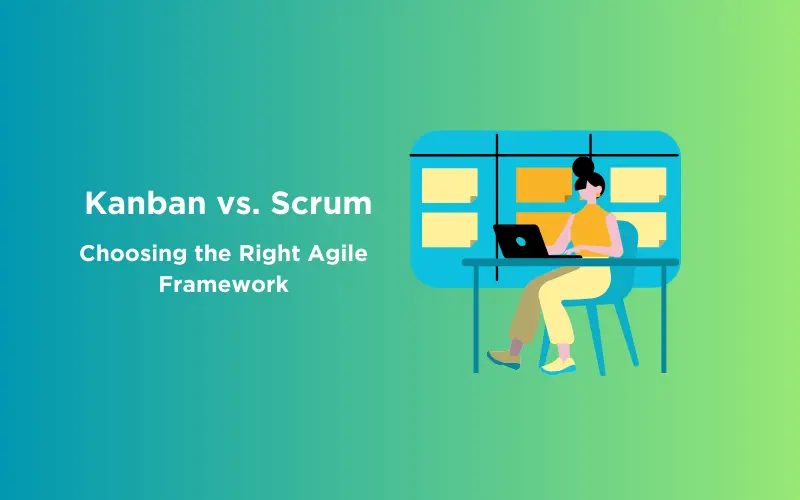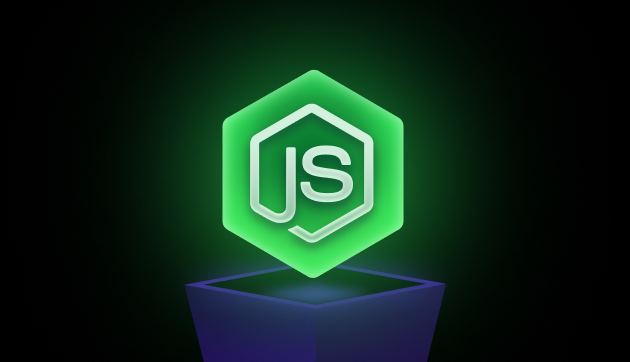![10 Unique Keras Project Ideas [With Source Code] 1 Post thumbnail](https://www.guvi.in/blog/wp-content/uploads/2024/10/Feature-Image.png)
10 Unique Keras Project Ideas [With Source Code]
Nov 19, 2024 4 Min Read 2800 Views
(Last Updated)
Keras is an important tool in the world of deep learning and in order to work with it efficiently, you need to build more projects on Keras.
But with so many project options, finding the right one that aligns with your skills and goals can feel overwhelming. This article is here to simplify your search with a list of unique Keras project ideas designed for different levels.
Each of these Keras project ideas here provides a clear breakdown to help you decide which one suits you best, along with essential details like complexity, learning outcomes, tools, and source code links. Let’s dive in!
Table of contents
- Top 10 Keras Project Ideas
- Animal Sound Classification
- Traffic Sign Recognition
- Medical Image Segmentation
- Bird Species Identification
- Music Genre Classification
- Product Recommendation System
- Weather Data Classification
- Spam Message Detection
- Air Quality Prediction
- Stock Market Price Prediction
- Conclusion
- FAQs
- What are the easy Keras project ideas for beginners?
- Why are Keras projects important for beginners?
- What skills can beginners learn from Keras projects?
- Which Keras project is recommended for someone with no prior programming experience?
- How long does it typically take to complete a beginner-level Keras project?
Top 10 Keras Project Ideas
![10 Unique Keras Project Ideas [With Source Code] 2 Keras Project Ideas](https://www.guvi.in/blog/wp-content/uploads/2024/11/image-01.png)
Each project is unique and carefully chosen to help you experiment with various Keras features while developing practical, real-world skills.
1. Animal Sound Classification
![10 Unique Keras Project Ideas [With Source Code] 3 Animal Sound Classification](https://www.guvi.in/blog/wp-content/uploads/2024/11/image-02.png)
Build a model that can classify different animal sounds, like dog barks, bird chirps, and cat meows, using Keras. This project will allow you to work with audio data, including data preprocessing and classification.
Project Complexity: Intermediate
Learning Outcomes: Audio data preprocessing, feature extraction, classification using neural networks
Time Taken: 3–4 hours
Features of the Project: Includes feature extraction from audio signals, model training, and evaluation, with visualization of classification results.
Libraries and Tools: Keras, Librosa (for audio processing), TensorFlow, Jupyter Notebook
Real-world Applications: Wildlife monitoring, species identification in bioacoustics
Source Code: Animal Sound Classification
2. Traffic Sign Recognition
![10 Unique Keras Project Ideas [With Source Code] 4 Traffic Sign Recognition](https://www.guvi.in/blog/wp-content/uploads/2024/11/image-03.png)
Create a model to recognize and classify traffic signs from images. This project is ideal for understanding image classification using Keras and CNN architectures.
Project Complexity: Intermediate
Learning Outcomes: Hands-on experience with image preprocessing, CNN-based classification, and transfer learning
Time Taken: 4–6 hours
Features of the Project: Involves creating a dataset of traffic signs, building and training a CNN model, and testing the model’s performance on new images.
Libraries and Tools: Keras, TensorFlow, OpenCV, Jupyter Notebook
Real-world Applications: Autonomous driving systems, traffic monitoring, and smart city applications
Source Code: Traffic Sign Recognition
3. Medical Image Segmentation
![10 Unique Keras Project Ideas [With Source Code] 5 Medical Image Segmentation](https://www.guvi.in/blog/wp-content/uploads/2024/11/image-04.png)
Segment specific areas in medical images (like detecting tumors) using Keras. This project introduces you to the world of semantic segmentation, a crucial task in medical image analysis.
Project Complexity: Advanced
Learning Outcomes: Semantic segmentation techniques, medical image preprocessing, and deep learning applications in healthcare
Time Taken: 6–8 hours
Features of the Project: Includes preparing medical imaging data, training a segmentation model, and validating the segmentation accuracy.
Libraries and Tools: Keras, TensorFlow, OpenCV, SimpleITK for medical image processing
Real-world Applications: Diagnostic imaging, medical research, healthcare automation
Source Code: Medical Image Segmentation
4. Bird Species Identification
![10 Unique Keras Project Ideas [With Source Code] 6 Bird Species Identification](https://www.guvi.in/blog/wp-content/uploads/2024/11/image-05.png)
Create a model to classify bird species based on images. This project involves working with high-resolution images and is perfect for mastering fine-grained image classification.
Project Complexity: Intermediate
Learning Outcomes: Fine-grained classification techniques, transfer learning, and working with image classification datasets
Time Taken: 5–6 hours
Features of the Project: Includes data collection for different bird species, model training with a deep CNN, and validation of results.
Libraries and Tools: Keras, TensorFlow, OpenCV, and optional transfer learning with pre-trained models
Real-world Applications: Biodiversity studies, ecological monitoring, conservation efforts
Source Code: Bird Species Identification
5. Music Genre Classification
![10 Unique Keras Project Ideas [With Source Code] 7 Music Genre Classification](https://www.guvi.in/blog/wp-content/uploads/2024/11/image-06.png)
Train a Keras model to classify music into genres based on audio files. This project is an excellent introduction to audio data processing and multi-class classification.
Project Complexity: Intermediate
Learning Outcomes: Audio data processing, feature extraction, multi-class classification
Time Taken: 4–5 hours
Features of the Project: Extract features from audio files, build and train the model, and visualize classification accuracy across genres.
Libraries and Tools: Keras, Librosa, TensorFlow
Real-world Applications: Music streaming services, content categorization, audio recognition
Source Code: Music Genre Classification
6. Product Recommendation System
![10 Unique Keras Project Ideas [With Source Code] 8 Product Recommendation System](https://www.guvi.in/blog/wp-content/uploads/2024/11/image-07.png)
Develop a recommendation system to suggest products based on user preferences. This project explores collaborative filtering with Keras, useful for any beginner looking to build recommendation systems.
Project Complexity: Intermediate
Learning Outcomes: Collaborative filtering, matrix factorization, Keras recommender model basics
Time Taken: 3–5 hours
Features of the Project: Includes data preprocessing, model training on user-product interactions, and validation for recommendation accuracy.
Libraries and Tools: Keras, TensorFlow, pandas
Real-world Applications: E-commerce personalization, content recommendation engines, advertising
Source Code: Product Recommendation System
7. Weather Data Classification
![10 Unique Keras Project Ideas [With Source Code] 9 Weather Data Classification](https://www.guvi.in/blog/wp-content/uploads/2024/11/image-08.png)
This project involves building a model that classifies weather conditions, such as “rainy” or “sunny,” based on specific weather metrics. It’s an excellent project for beginners exploring classification and data preprocessing.
Project Complexity: Beginner
Learning Outcomes: Basic classification techniques, time-series preprocessing, model evaluation
Time Taken: 2–3 hours
Features of the Project: Weather data preprocessing, Keras model training for classification, and evaluating accuracy.
Libraries and Tools: Keras, TensorFlow, Pandas
Real-world Applications: Weather forecasting, agriculture, climate analysis
Source Code: Weather Data Classification
8. Spam Message Detection
![10 Unique Keras Project Ideas [With Source Code] 10 Spam Message Detection](https://www.guvi.in/blog/wp-content/uploads/2024/11/image-09.png)
Build a spam classifier to detect spam messages in a text dataset. This project is a practical way to apply Keras for natural language processing (NLP), focusing on text classification.
Project Complexity: Intermediate
Learning Outcomes: Text preprocessing, text vectorization, classification using Keras layers
Time Taken: 3–5 hours
Features of the Project: Text data preprocessing, spam classifier model training, and evaluation of new messages.
Libraries and Tools: Keras, NLTK for text processing, TensorFlow
Real-world Applications: Email filtering, message moderation, social media monitoring
Source Code: Spam Message Detection
9. Air Quality Prediction
![10 Unique Keras Project Ideas [With Source Code] 11 Air Quality Prediction](https://www.guvi.in/blog/wp-content/uploads/2024/11/image-10.png)
Predict air quality levels using historical pollution data with a regression model built on Keras. This project is perfect for anyone interested in time-series forecasting applications.
Project Complexity: Intermediate
Learning Outcomes: Time-series regression, feature engineering, model evaluation techniques
Time Taken: 4–6 hours
Features of the Project: Data preprocessing for time series, model training for regression, and predictive performance evaluation.
Libraries and Tools: Keras, TensorFlow, pandas
Real-world Applications: Air quality monitoring, public health, environmental analysis
Source Code: Air Quality Prediction
10. Stock Market Price Prediction
![10 Unique Keras Project Ideas [With Source Code] 12 Stock Market Price Prediction](https://www.guvi.in/blog/wp-content/uploads/2024/11/image-11.png)
Train a Keras model using LSTM networks to predict stock prices, a common application of time-series forecasting in finance. This project is excellent for learning LSTM model usage.
Project Complexity: Advanced
Learning Outcomes: LSTM modeling, time-series forecasting, financial data preprocessing
Time Taken: 5–8 hours
Features of the Project: Includes data collection, preprocessing for stock prices, training an LSTM model, and evaluation of prediction accuracy.
Libraries and Tools: Keras, TensorFlow, pandas
Real-world Applications: Financial trading, investment analysis, economic forecasting
Source Code: Stock Market Price Prediction
These unique Keras project ideas, along with their source code links, will give you hands-on experience with Keras across a variety of practical applications. Each project offers a fresh learning opportunity in different aspects of machine learning and deep learning.
In case you want to learn more about machine learning, deep learning, and its concepts, consider enrolling in GUVI’s Artificial Intelligence & Machine Learning Certification Course which teaches you everything from scratch and equips you with all the necessary knowledge!
Conclusion
In conclusion, these Keras project ideas provide a diverse range of applications, from audio processing to time-series forecasting. Experimenting with these projects is a great way to dive into real-world applications of deep learning, and each project helps you build practical skills that are valuable in the industry.
FAQs
Beginners can try the Weather Data Classification or Spam Message Detection projects, which are great starting points with manageable complexity.
Keras projects provide hands-on experience, making it easier to understand deep learning concepts and apply them to real-world scenarios.
These projects help beginners with skills in data preprocessing, model training, and evaluation, setting a solid foundation in neural networks.
The Weather Data Classification project is an excellent entry point for beginners due to its straightforward approach.
A beginner-level Keras project may take about 2–3 hours, depending on the project’s complexity and the user’s familiarity with Python and machine learning.

























![Top Full Stack Web Developer Coding Projects in 2025 [With Source Code] 16 Full Stack Web Developer Coding Projects](https://www.guvi.in/blog/wp-content/uploads/2021/10/The-Good-Life-GoDaddy-Store-Image-10-600x250.jpg)


![10 Impressive Data Visualization Project Ideas [With Source Code] 18 Data Visualization Project Ideas](https://www.guvi.in/blog/wp-content/uploads/2024/11/best_data_visualization_project_ideas_with_source_code_.webp)
![Top 12 Best Web Development Projects for All Techies [With Source Code] 19 web development project](https://www.guvi.in/blog/wp-content/uploads/2023/08/Feature-Image.webp)

Did you enjoy this article?